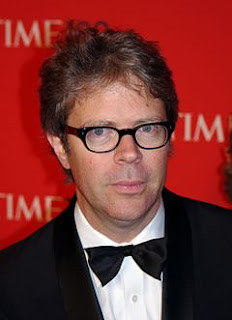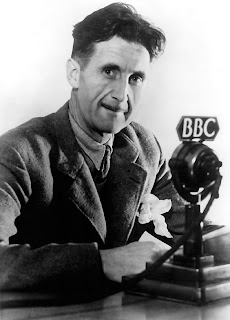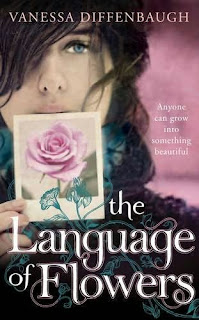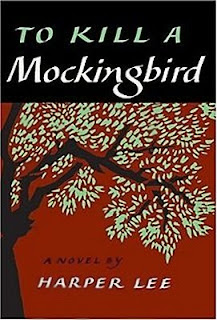The 20 Greatest Self Development Books
Ever Written
As a Life Coach I have read a LOT of self development books, probably in excess of 500 over the last couple of decades and I regularly get asked what are my favorites of of all time are. I usually shirk the answer because it is so subjective, but today I thought I'd take a stab at listing what I think are the best 20 ever written.
The following books are the ones that have stand the test of time for me, and me alone. What I mean by that is that I am fully aware that books like The 7 Habits, Flow and Think And Grow Rich were/are classics, and indeed, I enjoyed all of them.
However, I happen to think that there are now better, more accessible books out there, and as such none of the above make my list. Although, it has to be said, they would have done if I was writing a list of the 20 most influential self development books ever written. As would, almost certainly, The Power Of Now, How To Make Friends and Influence People, As A Man Thinketh and Get Things Done.
I'm also including books that you may not necessarily find in the self development isle of your local book store. I believe books on social and behavioral psychology that help us understand how, and why, we make decisions, can be just as useful for self development purposes as more traditional 'how to' kind of publications.
20. The Element - Sir Ken Robinson
I'm not sure if this book will stand the test of time because although it's about creativity, it's also about the education system as it stands now. Education sucks in this country (and the rest of the world I may add) and we need a fundamental overhaul from top to bottom and Sir Ken Robinson gets this.
Make no mistake though, The Element is not a rant, although Robinson could have been forgiven for allowing it to become one.
It is however, a fascinating insight into creativity and there are some great stories of people through sheer determination, refusing to allow their dreams and creative edge to be buried. If you are in any doubt at the whether this book is for you, go and watch Sir Ken deliver his brilliant speeches at Ted.com
19. Embracing Fear - Thom Rutledge
I love Thom Rutledge because he is a real person. He's a brilliant therapist that admits he had a huge alcohol problem and that his life isn't perfect or even close to being perfect. He's funny, intelligent and very, very good at what he does.
Embracing Fear is a thoughtful and amusing book with more of its fair share of A-ha! moments. If fear is a problem in your life then this is good a starting point as any and in my humble opinion is blows away the more celebrated "Feel The Fear and Do It Anyway"
18. The Motivated Mind - Raj Persaud
I bought this book a few years ago back in England and never finished it. However, I pulled it out a few months ago to find something I thought I had read in it and was amazed at how much great stuff I had missed out on.
Persaud has since been found guilty of plagiarism after he lifted a colleagues work in a medical paper he published, and that almost caused me leave it off the list. But that would be an injustice because it's an excellent insight into the human mind that deserves to be read no matter who wrote it.
It drifts between psychology, coaching and common sense and (he even takes time to slam Life Coaching!) and he's not the funniest dude on the planet, nor even in his own household I would imagine, but it's still a great book if you can track a copy down.
17. Don't Sweat The Small Stuff (And It's All Small Stuff) - Richard Carlson
This book sat in my bathroom for what seemed like years. It did for me over that time period what my iPhone with its Scrabble app does for me now, if you know what I mean.
DSTSM contains 100 short chapters of timeless wisdom. It's the kind of book that you can open, read a chapter and immediately be able to apply it to your life.
It's probably not earth-shattering and it may not necessarily help people to change permanently, unless they allow it to. However, it may well prompt them to pause and take stock which has to be the starting point for conscious change.
16. The Brain That Changes Itself - Norman Doidge
A fascinating and excellent book for sure and one that really opened my eyes to the potential of the human brain and what we can do at an individual level to maintain our own cognitive abilities.
The part that jumped out as me was the research that suggests there seems to be no real reason (drug and alcohol abuse notwithstanding) for the brain to deteriorate like it does in most people. And the predominant cause is through the lack of the right kind of stimulation, and not because of how old somebody is.
This book will be great if you ever bristle at people that claim others cannot change and use phrases like, "A leopard never changes its spots". This book gives you the scientific proof as to why that is, and I use a technical term now so Google it if you're not sure what I mean, total bollocks.
15. The Monk Who Sold His Ferrari - Robin Sharma
In a nutshell, a rather unhappy, unfulfilled but in terms of work, highly successful, attorney, has a heart attack. He starts to question the reasons behind his relentless pursuit of money and winning court cases at all costs. When he doesn't discover the answers he heads off to find himself an Indian guru or two hoping they can explain the meaning of life to him.
As you may have guessed, he does indeed find his purpose for existence as well as peace of mind and a nice saffron robe too.
When I first read this book I was quite indignant, because although Sharma uses other peoples quotes and ideas he attributes none of them. I kept thinking "Such and such said that" and that was "Such and such's idea"
I was being churlish and anal using that as a criticism because it's total jealousy because I didn't think of such a brilliant idea.
If you want a fast track to some of the best self development material (without ever knowing where it came from), this is the book for you. Whisper is quietly, you may even find mention of 30 day challenges years before another well known self-development guru supposedly invented them.
14. Predictably Irrational - Dan Ariely
Most people presume they are a rational person making decisions in life based on cold hard facts. The reality is, everybody is irrational and we all make decisions often in spite of contradictory facts and evidence.
As a sales person I have intuitively known people are irrational for years, but I never realized that irrationality was so predictable and so exploited by advertisers and marketers.
'Predictably Irrational' explains why we procrastinate, why we like to leave our options open, often to our own detriment, the power of free, why people are dishonesty and the real cost to Society, the power of beliefs and the difference between social and market norms.
Some of the stories I have read or heard about before, but as a Professor of Behavioral Economics at MIT, there is a lot of his own work included that was new to me. The way he weaves it all together makes this a highly enjoyable and incredibly enlightening read.
If you want to know more about what makes you and others tick and be even more aware of how the less scrupulous sometimes use that knowledge to sell to you, then this is the book for you.
13. The Success Principles - Jack Canfield
I'm not even sure what I really think about Jack Canfield because he can sometimes appear smarmy and insincere and will be forever linked to the The Secret, which I didn't really care for.
However, my suspicion, for what it's worth is that Canfield is a genuine guy, but whether he is or whether he isn't, The Success Principles is an excellent read. In fact, it probably provided me with the biggest A-ha! moment in my life when Canfield told the old adage;
"If one man tells you you're a horse, he's insane.
If three men tell you you're a horse, there's a conspiracy.
And if ten men tell you you're horse, you need to get a saddle."
Reading that made me realized that I needed a saddle and that all the people telling me I was a negative person weren't delusional, I was.
One of the greatest collection of uplifting, inspirational and can-do stories mixed in with Canfields common sense wisdom make this a modern day classic, at least in my mind.
12. Awaken The Giant Within - Tony Robbins
Robbins is the easiest figure in the personal development field to poke fun at. After all, he's about 13 feet tall, is outrageously intense, appears to be Benjamin Button and has the shiniest teeth in Christendom. Yes, even shinier than Jack Canfields!
He also took NLP techniques largely developed by Bandler and Grinder, repackaged them, re-named them in some cases and then delivered them to the masses. To be fair, and to the best of my knowledge, he ever explicitly claimed credit and I'm not even sure he meant to mislead anybody, he just delivered some great information
Awaken The Giant Within introduces some very powerful NLP ideas that are relatively easy to employ and can be life changing, and the story about how Mr Honda started Honda Automobiles is worth getting the book for alone.
It's a long book though at well over 500 pages so if you like quick reads it wont be for you.
11. Learned Optimism - Martin Seligman
I recently re-read this a few years after I first heard it as an audio program and I got even more out of it the second time round.
It's important to understand the difference between optimistic thinking and positive thinking because they are not the same thing. The jury is out scientifically speaking, as to whether affirmations and positive thinking are always helpful. In fact, many people think they can actually be unhelpful in certain circumstances.
If you're being chased by a very hungry bear and you have 2lbs of live salmon wriggling around down your underwear, thinking affirmations and telling yourself not to worry because everything will be ok, probably wont help (not you or the salmon anyway, the bear will be fine with it).
Being optimistic that you have the power to change things however, would encourage you to look for solutions and in no time at all you'll have either tossed out the fish or eaten them and died from mercury poisoning
It is serious science that Seligman presents and leaning on cognitive behavioral therapy research to explain how we can make changes.
The remarkable conclusions about the benefits of thinking optimistically are readily accepted wisdom now and include, better health, better prospects for success at work and a longer life span. Not bad huh?
10. The Power of Full Engagement - Jim Loehr and Tony Shwartz
This book really does deserve all the praise it receives. It's the first book ever written (that I know of anyway) that transfers techniques developed by the authors to help athletes perform at a top-class level, to the world of business.
Loehr and Swartz suggest that you're only as strong as your weakest link and as such you need to get all aspects of your life right i.e. spiritual, mental, emotional and physical if you want to excel.
They talk about the need for proper nutrition, exercise and disengagement from work that includes family and social time. In short they take an holistic approach they know works with world-class athletes and reason it will be helpful to anybody. I happen to agree for what it's worth.
9. Prometheus Rising - Robert Anton Wilson
There is an NLP Presupposition that says 'The Map is not the Territory' This book could have been quite easily and accurately, called that.
Wilson was a maverick and a quite brilliant thinker, of that there is no doubt. PR gets a bit weird in places and his humor is somewhat off the wall, but there is a very important message pertaining to what we believe reality is, and probably more importantly, what we think it isn't.
The paradox with this book is close-minded my way or the highway types are the people that would get most out of it, but they are the least likely to read it. Or if they do read it they'll just dismiss Wilson as some pot smoking, liberal intellectual, which is of course is exactly what he was.
8. I Know What To Do, So Why Don't I Do It? - Nick Hall
Probably the best self development book you've never heard of and it has been criminally under-marketed. If you want to know how your belief system operates, how to tell in under 5 seconds whether you are in a creative mindset or not, how to set goals that will stick, how anchors or conditioned responses work and how to deal with stress, then this is the book for you.
7. Stumbling on Happiness by Daniel Gilbert
Gilbert takes a look at how the brain works for us and sometimes against us. The twist is that he presents the information in such a manner that even I understood what he was talking about. Not only that, but he had me laughing out loud on several occasions and smiling almost throughout.
The book has a downside though. It will make you realize that you really aren't that unique. Heavens to Betsy, what am I saying, not unique? Well of course you're unique, but you don't really think that uniquely. You think you do, so that's the bit that might niggle you when you finally have to accept that your brain does a great job of fooling you for much of the time.
You'll learn why it's almost impossible to predict how you'll feel about things in the future, hence the reasons why we make so many bad choices. Why money has almost zero effect on your happiness levels and why it's literally impossible to know how happy somebody else is, even if they tell you!
6. Living As A River - Bodhipaksa
This is quite simply the best book on spirituality I have ever read and one I intend to revisit again in 2011. As I told my own blog readers, I found it almost impossible to review and it often left me feeling uncomfortable and frustrated. That may sound like bad thing but nothing could be further from the truth because those states often arise when we are being dragged out of our comfort zone and Living As A River certainly did that. Definitely for you if you like to stretch your thinking and ponder the bigger questions about life and existence. Note: This book is 100% dogma free so if you subscribe to one particular religion and like it that way, Living As A River will not threaten that and it certainly won't try and ram Buddhism down your throat.
5. Overachievement - John Elliot
I actually have this book as an audio program called The Maverick Mindset and if you can afford it I would say buy that rather than the book because it's outstanding!
There are so many great stories from his time as a Sport Psychologist at Rice University and whilst growing up with a father who worked with the US Olympic Ski team, that it's been a constant mine of information to me.
It is heavily sports slanted so if you hate sports, it may not be for you. But it will show you that you can think differently if you really want to and I have never had anybody that bought it tell me anything other than they loved it.
4. Blink - Malcolm Gladwell
Some people miss the fact that this book can really help with personal development. It's the best book I have ever read on rapid cognition. Come to think of it, it's possibly the only book I have ever read devoted solely to rapid cognition.
If you want to understand the power of your unconscious mind and why you should trust it more often, Blink is your answer A few people panned it on release saying it encourages people to be lazy with how they think and not bother to analyze stuff.
I want to say they're idiots that have missed the whole premise of the book, but no Life Coach would ever say such a thing and they are entitled to their opinion.
3. How We Decide - Jonah Lehrer
'How We Decide' not only explains what is going on inside the brain as we make decisions and why we are sometimes so poor, but it does so in a manner that is accessible and interesting to most people. You won't get lost in academic jargon because what there is, is explained clearly and concisely.
Lehrer brilliantly uses real life examples of famous 'blow ups' and successes to explain what was actually happening inside the mind of the person at that time. Occasionally his facts are a bit off, saying Jean Van De Velde lost the British Open on the eighteenth hole, when in reality his total collapse meant a play-off he then lost, but that is a minor quibble.
'How We Decide' will help you understand your thought processes better, realize when to let your unconscious make decisions and when it's best to use your conscious rational mind. It even explains why so many people get caught up in credit card debt and others are prone to become addicts. Great stuff!
2. Your Brain At Work - David Rock
Quite simply it's the best book I have ever read on how the brain works. I don't mean in a dry academic way either, this is aimed squarely at the layperson looking to improve his or her performance in any area of life, but especially the work place.
The book is written in a very quirky and entertaining way.
There are two main characters (a married couple) that undergo numerous situations that put their brain under pressure. Rock firstly runs through the situations as most people would tend to try and manage it.
Then Rock explains what was wrong with their approach and what they could have done to have been more effective, and just as importantly, why they would have had more success.
Then he retells the story with the character acting in a more empowering manner with the new found information.
I learned so much from this book like we have 1/3rd of a second to intercept negative thoughts before we act on them. That it is now accepted the human mind can not hold 7 things is conscious awareness at once, as previously believed, but only 4.
I also learned what happens in the brain just before we get a major insight or new discovery and how we can make them more likely to happen. And why we often procrastinate and the reasons men more likely to do so than women.
1. Man's Search For Meaning - Viktor Frankl
Viktor Frankl spent four years in four different German run concentration camps during World War 2. His observations during that time led to his ground breaking development of the psychology field of logotherapy.
Logotherapy is almost anti-Freudian in its belief that human beings aren't wired up to seek pleasure, but to seek a meaning in life. Those that survived the horrors of places like Auschwitz for any length of time, more often than not had a strong purpose for existence. It is that, which Frankl believed drove them on and gave them hope, ultimately helping them to survive.
At times the book is both harrowing and depressing, but if you can look past the atrocities and the degradation of mankind, you'll find an uplifting book with some very dark humor.
The thing that makes this the greatest book of all time when it comes to self development, is that not only has everything Frankl observed since been supported by scientific research, but even more importantly in my opinion, it offers hope to every human being on the planet.
That no matter how desperate their circumstances they can prevail.
Tim Brownson is an Professional Certified
Life Coach. and author from the UK now living in Florida. He is currently in the process of raising $1,000,000 to giveaway to good causes 1,000,000 copies of a book he has co-authored called
How To Be Rich and Happy.
Article Source:
http://EzineArticles.com/?expert=Tim_Brownson
http://EzineArticles.com/?The-20-Greatest-Self-Development-Books-Ever-Written&id=5631528













